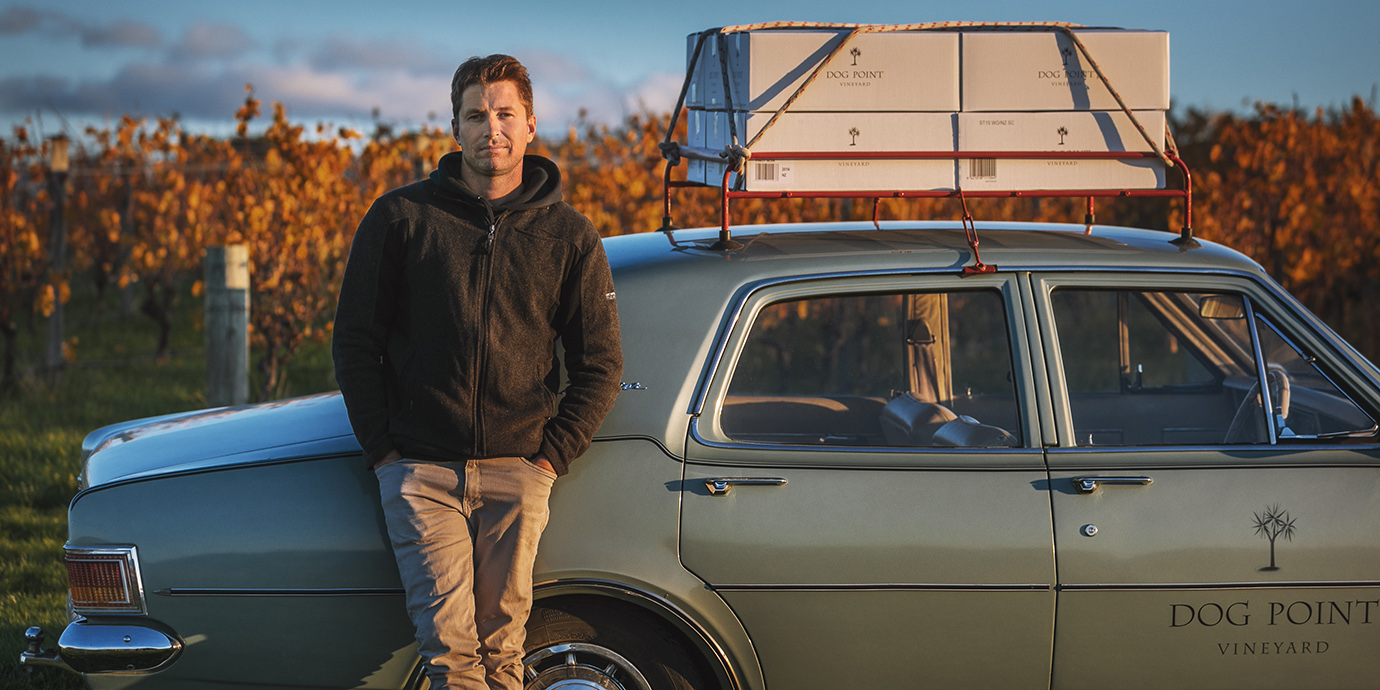Kordia
CrowdStrike outage: security tips while hackers take advantage of chaos
Threats remain as scammers look to capitalise on CrowdStrike global outage.
Dog Point Vineyard exports to 47 countries that are all in a state of flux due to COVID-19, but the family business is nimble and resilient enough to thrive, says director Matt Sutherland.

IoD Associate Matt Sutherland used his experience on the Company Directors Course (CDC) to inform Dog Point winery’s crisis plan for the pandemic.
“I don’t like using the word ‘crisis’ because it seems like there is no turning back. But for lack of a better term… I sat down with a few of my colleagues and said we need to have a crisis plan,” Sutherland recalls.
“It was something I learnt off the CDC. What’s the worst case scenario? There was a serious amount of anxiety in the days around the announcement of lockdown and it was quite vague in terms of what was deemed essential and what wasn’t. Are we allowed to keep operating or are we not? Where is the line in the sand in terms of essential operators?”
For the winery, the key priorities were quickly identified as harvesting the grapes that needed to be picked early and then working out who in our team was essential in order to complete vintage. March to May is a key time in the industry when crops are harvested and winemaking gets underway. It cannot be delayed.
“Low and behold, two weeks later we were in lockdown.”
The family-run business has accommodation on site. It was decided that a vintage crew would have to live there for as long as lockdown lasted, in its own bubble.
“I describe it as kind of a posh Gloriavale – though we are much more progressive,” he laughs.
“There was a great commitment from the team. In times of adversity, it is amazing how people step up. One guy had previously only had one night away from his wife in 44 years of marriage and he was with us for the duration.”
With the winery locked down completely and safety processes put in place to ensure any breach by the virus could be contained, it was still a frightening time given knowledge of COVID-19 and its prevalence was very limited.
Tractor and forklift operators used one vehicle only, and they were not allowed to swap. Cleaning was ramped up where tools needed to be shared. Delivery drivers were not allowed out of their cabs and there was no contact between them and people in the winery. There was a COVID-19 plan review each day.
“Within the winery we were staying two metres apart, even around the coffee table,” Sutherland says.
“There were some nerves there around whether or not we could continue. Once we knew we could, we found ourselves in a privileged position, as a lot of business could not continue to operate. We wanted to make sure we adhered to the essential operating rules and more. NZ Winegrowers were excellent at providing up-to-date information and we wanted to make sure we did the right thing by everyone else in New Zealand.
“We were lucky. A lot of people were doing it very, very hard, particularly in tourism, and continue to. Marlborough has the largest plantings in NZ by some way. If we could not operate as an industry, and pick, the knock-on effects could have been catastrophic. Crops come once a year, costs come every day.”
The weather gods smiled and vintage was successful. Sutherland pays particular tribute to his team for their willingness to tackle adversity and make a success of it.
“The culture we have here is very impressive. It was one of the most efficient vintages we have ever had. We had great weather and the fruit was amazing.”

But there were new and untested pressures on everyone due to changed workloads, separation from family and the anxiety associated with the pandemic. Sutherland found it affected people in different ways.
“For us, we had to be quite wary of how people react differently to different situations. We needed to protect people’s health – be that physical or mental health. We were conscious to provide resources to people if they wanted to chat or needed help for any reason.”
There were some “pretty tough” moments, he says.
“We could only keep a small ‘essential’ team. We said farewell to the bulk of our team, people had to go home and that was tough because they all wanted to help. Some people had family considerations; some people were more at risk than others from a health perspective.” Everyone’s situation was different.
Sutherland says management tried to be fully transparent and ensure staff understood what was going on and why, particularly around the performance of the business.
“We are very much a hospitality-driven business and that shut overnight. Thankfully we had a little bit of retail as well, but things looked different to what we were used to. Every day, something new happened or the situation changed.
“I stopped making plans, basically. It is so hard to forecast in those circumstances. As a director of this business I was sitting there wondering how to plan for something when we didn’t have a clue what was going to happen.”
The answer was to simplify his thinking and the operation.
The priorities became protecting the workforce - “keeping everyone in their job was top of the list” – and ensuring distributors across the world remained interested in the Dog Point brand.
“Reaching out to everybody was important. I was on the phone for hours and hours a day trying to understand what was happening. Every market was different. Hong Kong shut down but bounced back more quickly than we thought. Sweden, with a more relaxed approach, just ticked over. The UK was up and down and up and down.
“We did so much travel before this happened. One year I was on the road for four months of the year. But over lockdown I could pick up the phone to those people and they knew who they were dealing with, so we could start problem solving straight away. You’ve got trust. You know they are not having you on if they tell you it’s tough, and vice versa.”
They knew we could not control sales, so focussed on controlling costs. They opened dialogue with suppliers on payment terms. Staff were updated regularly as plans could change from day to day.
“We were hoping for the best, but planning for the worst.”
Sutherland says the willingness of people to work in difficult conditions and modify contractual arrangements in light of changed circumstances helped limit the impact of the crisis.
“As a director it has been eye opening. It just shows the camaraderie that exists in New Zealand. The worst thing to see is someone you have worked with closely go under, but you are protecting your own interests as well. It’s no good if your bottle supplier can’t supply you bottles anymore.”
“I’m proud of the whole team, to be honest. You really realise who you have working for you at times like this. They really stood up.”
There were even a few positives from the experience. The team worked more efficiently than ever before. There were some cost savings found. Relationships with suppliers and distributors were cemented.
“As a board, and as a management team, we identified people’s strengths and weaknesses even more and that helps us as a business. The supply chain side of it highlighted areas we needed to improve in, and areas we were really strong in. We have introduced a bit more of a corporate structure into this family business, and I think that has really helped us – even just having a crisis plan.”
Things have definitely improved but the economy – locally and globally – is not out of the pandemic woods yet, Sutherland says.
“People are eating lunch next to each other and you can give people a hug or a high five. But that can change at any time,” he notes.
“For me, it’s about managing costs and there is a bit of day-to-day planning still. Our biggest problem is getting stuff from A to B. Containers are backed up. If there is a COVID-19 outbreak, a port can shut down. Then you throw Brexit into the mix. When you have demand but you just can’t get wine there, it is frustrating.”
That said, the important thing is to not “blow a gasket” and try to keep things in perspective.
“We will have a new crisis plan in 2021 and vintage will be crucial. We export to 47 countries and every one of them is working differently than in the past, so that’s a real challenge. But we are able to get wine out and there is demand out there. We are incredibly fortunate and go forward with cautious optimism.”